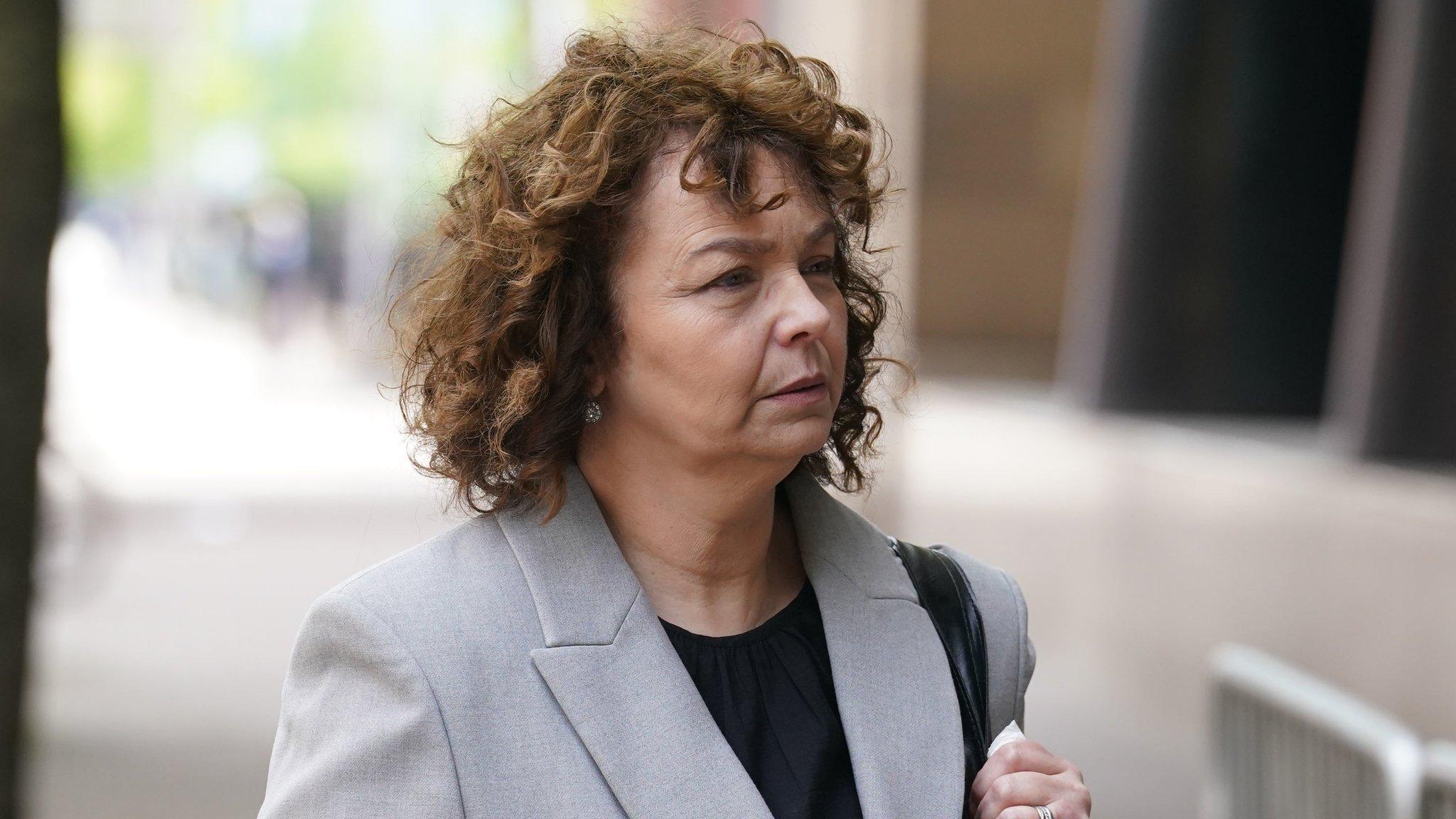Covid Inquiry: DoH should have been more direct about preparation
- Published
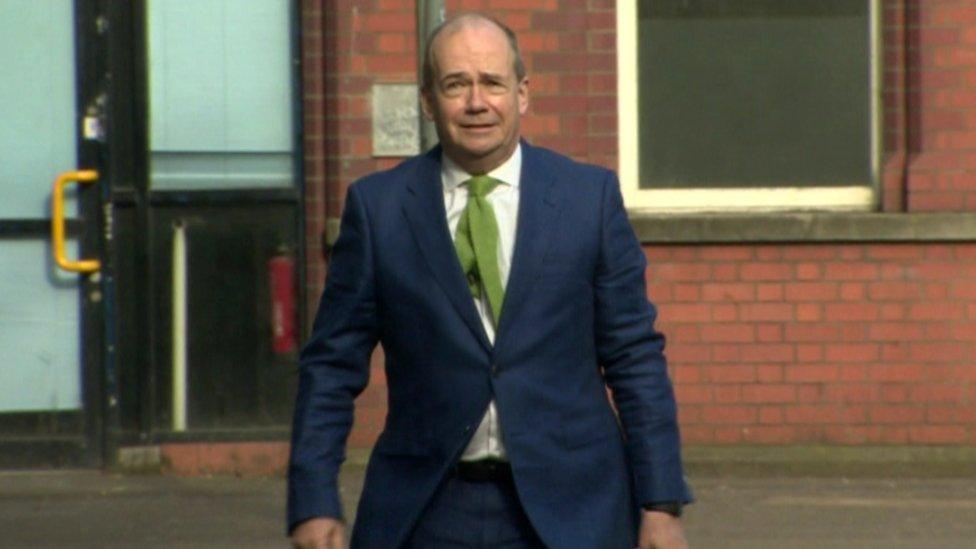
Prof Sir Michael McBride arrives at the UK Covid-19 Inquiry in Belfast on Friday
NI's chief medical officer (CMO) has said he accepts that the Department of Health should have used more direct language about triggering pandemic preparation plans in correspondence with The Executive Office.
Prof Sir Michael McBride was testifying at the UK Covid-19 public inquiry.
He said Northern Ireland was on high alert from the end of January 2020.
He was asked when alarm bells started ringing within the department about the emerging threat.
Lead counsel to the inquiry Clair Dobbin KC put a letter from Liz Redmond, director of population health at Northern Ireland's Department of Health (DoH), to Prof McBride.
The letter stated that the "DoH is responding to the rapidly evolving situation regarding the novel coronavirus as lead government department".
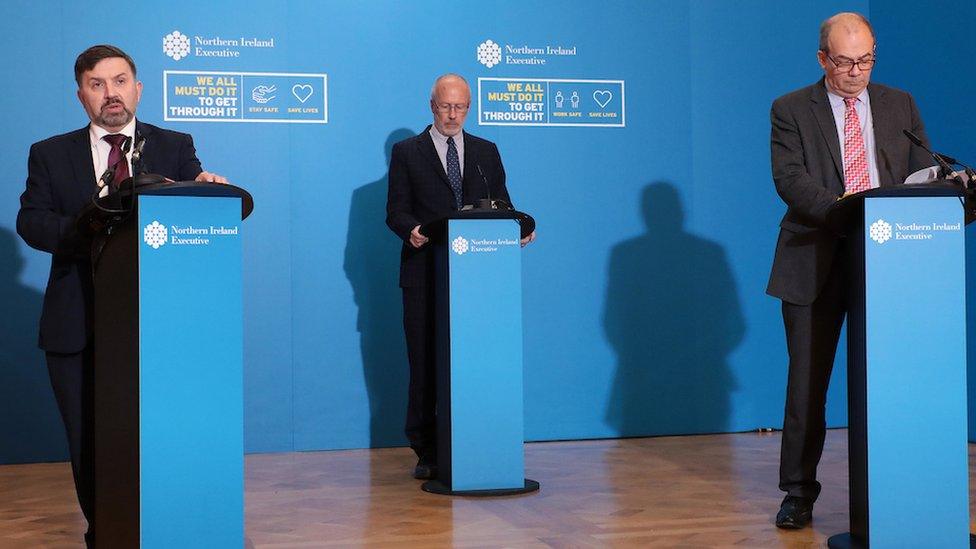
Health Minister Robin Swann, Chief Scientific Advisor Professor Ian Young and Chief Medical Officer Prof Sir Michael McBride at a press conference in Parliament Buildings, Stormont, in October 2020
It continued: "I do not consider it necessary to activate NICCMA [NI Central Crisis Management Arrangements] at this time, unless or until the infection appears in NI and impacts are experienced here."
The CMO said "what it wasn't saying was 'don't do anything'".
He said he thought the letter was signalling that the DoH's assessment at the time was "not just yet - but you need to get ready. You need to prepare".
The first deaths from the new coronavirus were confirmed in January 2020 in China; the first nationwide lockdown was imposed in the UK in March that year.
Prof McBride told the inquiry he thought the department was "clearly signalling there's a problem coming our way and we need to prepare for it - not just health but other departments need to prepare for this".
'Hardly sounds alarm bells'
Ms Dobbin put it to Prof McBride that the suggestion, contained in the letter, that "'it would be helpful if you would consider convening a multi-agency meeting' hardly sounds alarm bells".
Prof McBride said the department was clearly signalling that there was a potential problem and they needed to be assured of their preparedness, of readiness across government and of resilience throughout Northern Ireland's health sector.
He said the wording and its meaning would be "clearly understood by those who needed to understand" it.
Baroness Hallett, who is chairing the inquiry, asked if, in hindsight, it would have been better if the letter had said "we urge you, as a matter of urgency, to convene a multi-agency meeting" as opposed to "it would be helpful if".
Prof McBride accepted that the letter "could have been more direct" or "more action oriented" but said that was the sort of language used within government.
Baroness Hallett said: "In an emergency you don't do things in a normal way, you get on with it and I'm afraid that language doesn't give any sense of urgency."
Prof McBride said he wasn't the author of the letter but accepted the point.
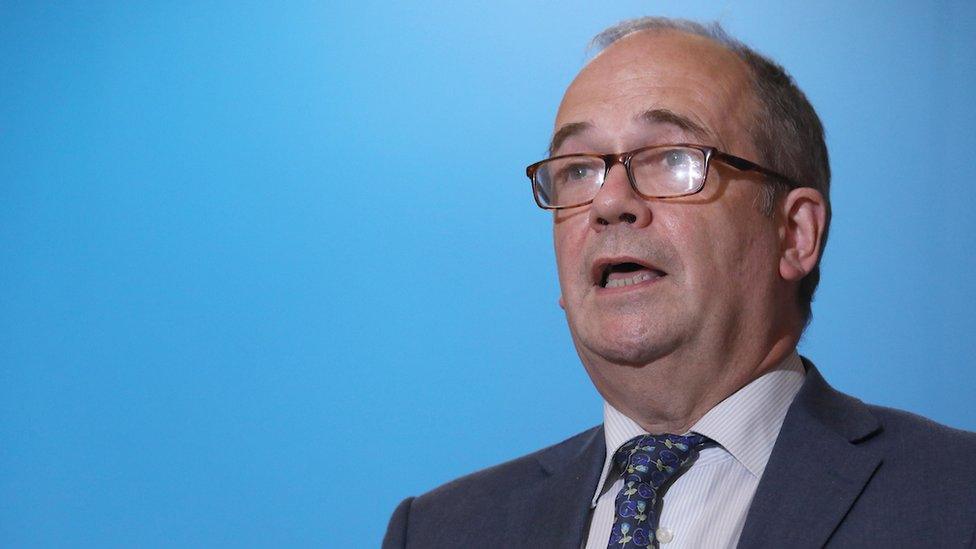
Prof McBride at a press conference in Parliament Buildings, Stormont, in September 2020
Ms Dobbin put excerpts of a DoH letter to the CMO outlining key public health advice and action to be taken by public authorities in Northern Ireland.
The advice given was that "those public authorities that already have continency plans for responding to infectious diseases, such as pandemic influenza, should ensure that all relevant staff are acquainted with those plans".
It added that "no other action is recommended at this time to public authorities in general".
Ms Dobbin said this was "hardly sounding alarm bells" for either NI government departments or public authorities.
'Scene-setting'
The CMO said all that the letter was doing was "scene-setting" for a subsequent briefing meeting. He said that at that meeting "assurances should be sought around contingency planning across the public sector and other organisations".
He said this letter was not "meant or intended to explain or set out the level of risk or the level of concern"; rather, it was "an enabler" to facilitate the meeting at which there would be an update provided.
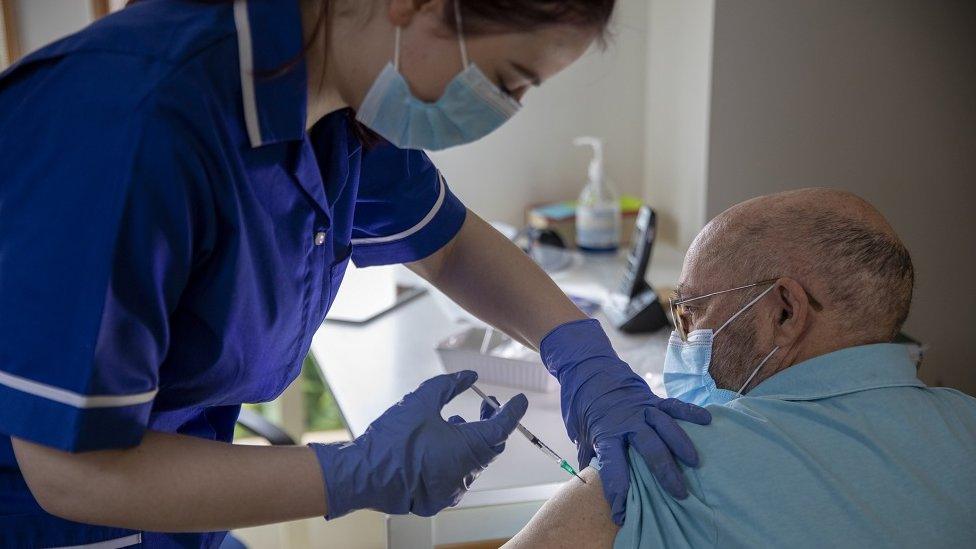
'Never envisaged'
Giving evidence earlier on Friday Prof McBride told the inquiry the scale of the response to the pandemic had never been planned for.
He said Northern Ireland had "never before performed contact tracing at the scale that we were contact tracing."
"We had similarly never tested to the extent we were ultimately testing in this pandemic," he added. "It had never been envisaged."
Prof McBride said there was initially a "precautionary approach" but that "sitting and waiting was not an option".
He also said he was surprised to hear there was a perception that his role during the pandemic was more than just an advisory one.
"I was very clear at every stage that ultimately the decisions were decisions for ministers and I have to say I'm somewhat surprised if there was any perception to the contrary," he told the inquiry.
Prof McBride said that not having membership of the UK government's Scientific Advisory Group for Emergencies (Sage) was a "disadvantage in the early days" of the pandemic.
Learn from care home testing
On testing older people from hospital into care homes, Prof McBride said one of the learnings should be around the testing of care homes.
He said evidence will show that the contribution of discharge from hospital to care homes would show made a very small contribution.
He said undoubtedly it made a "contribution but it wasn't the major factor. "
Prof McBride said the impact on older people and those with underlying health conditions did not become clear until they experienced cases in the UK .
While they could see what was happening in other countries and that there was an awareness of risk, when asked in his role when did he direct there should be special consideration to priority groups, the CMO said guidance was issued around the 17 March.
Prof McBride said he did not contribute to the strategy nor provide professional advice around the discharge of older people from hospital to care homes not because it was not an important issue rather he had other commitments.
He also rejected a suggestion that by removing the RQIA role on inspecting care homes he was not removing the "eyes and ears" of those going in and out of care homes.
- Published9 May 2024
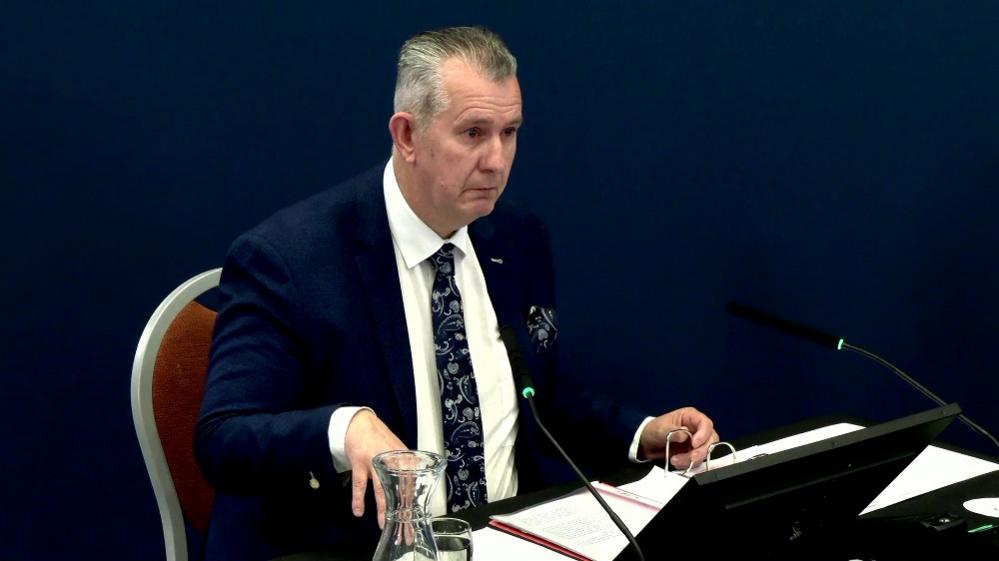
- Published8 May 2024
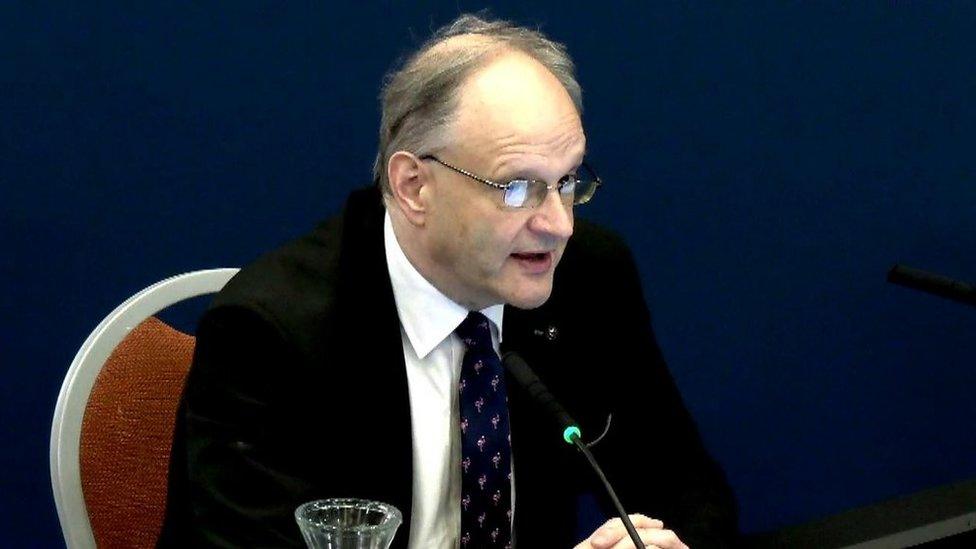
- Published9 May 2024

- Published8 May 2024
